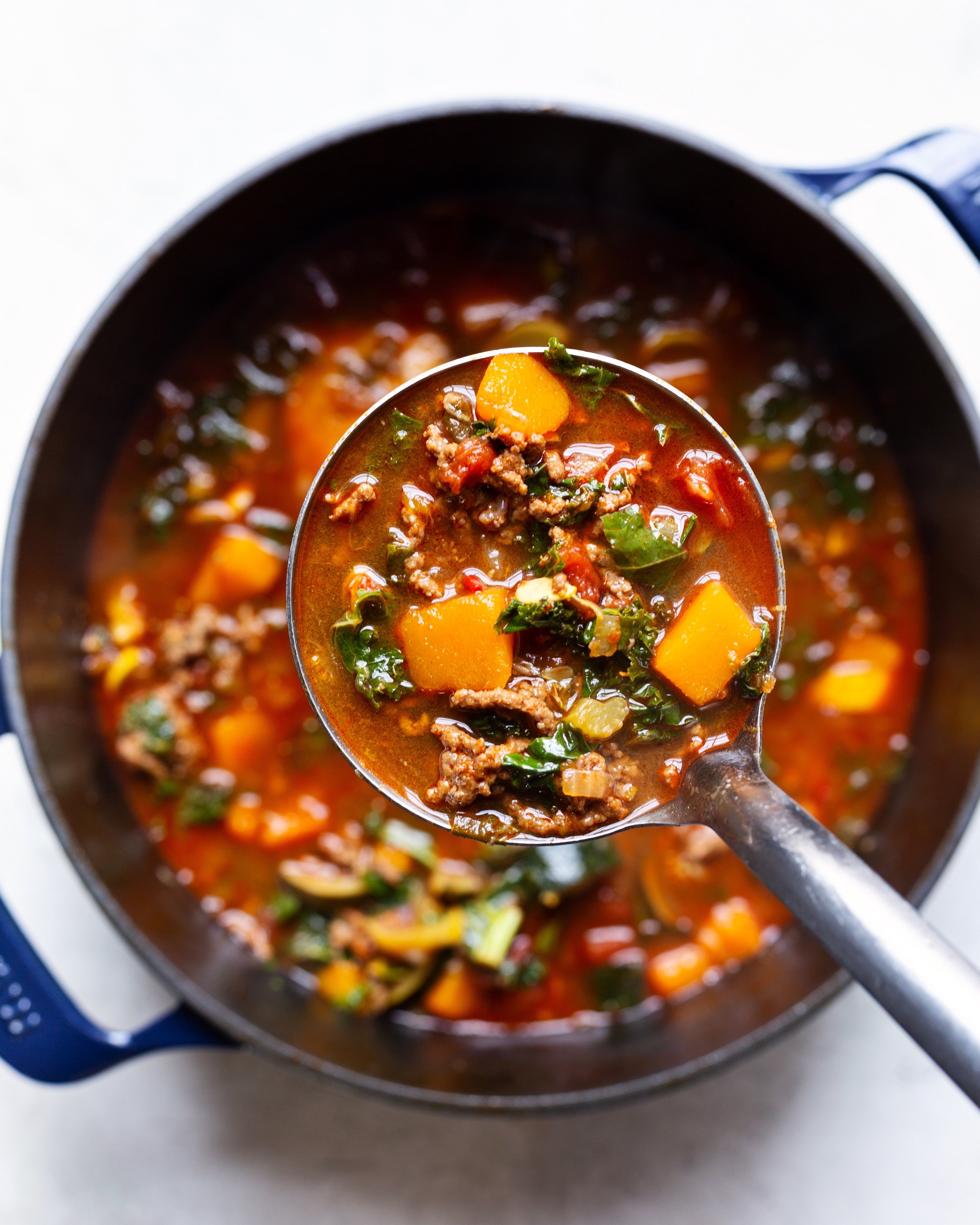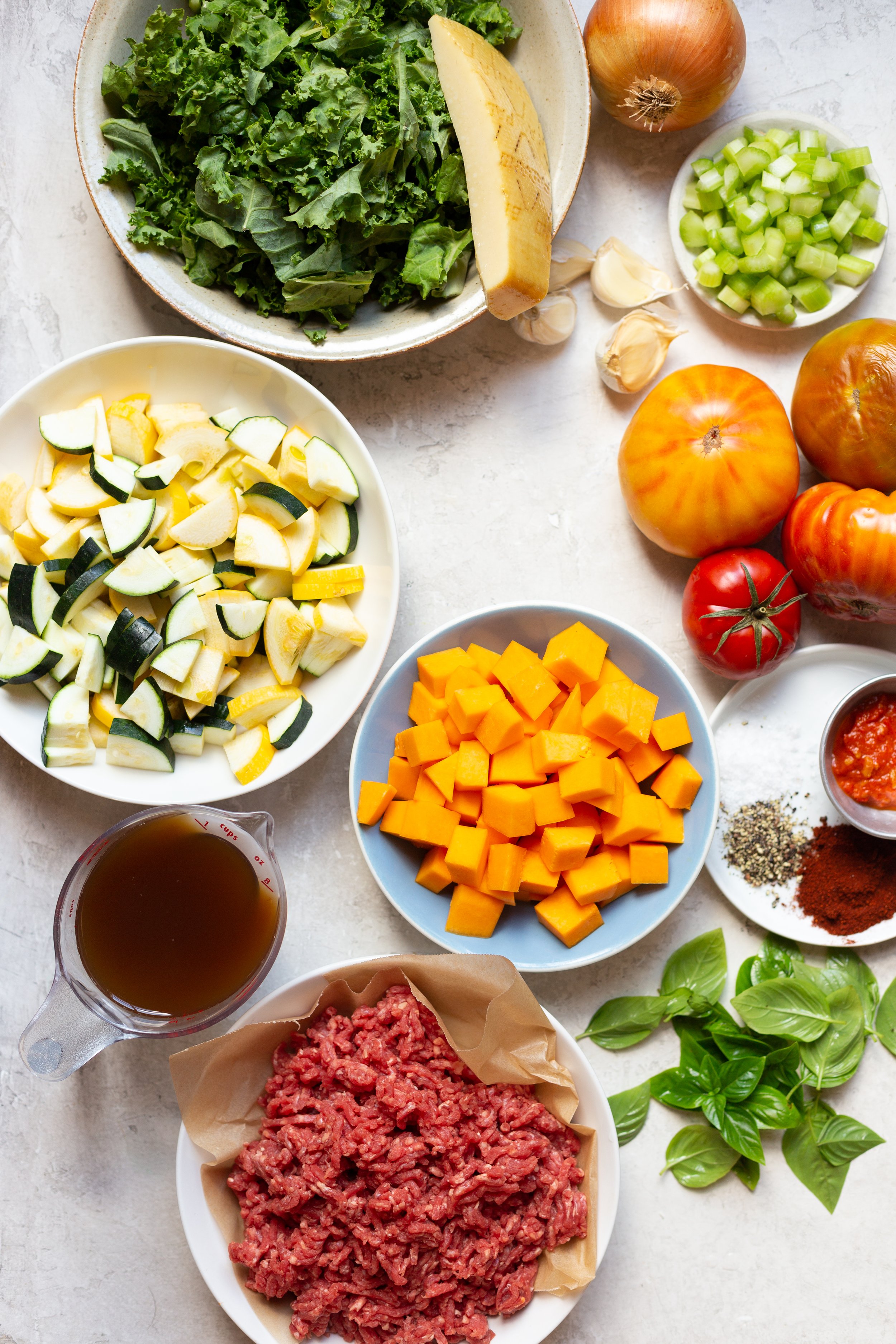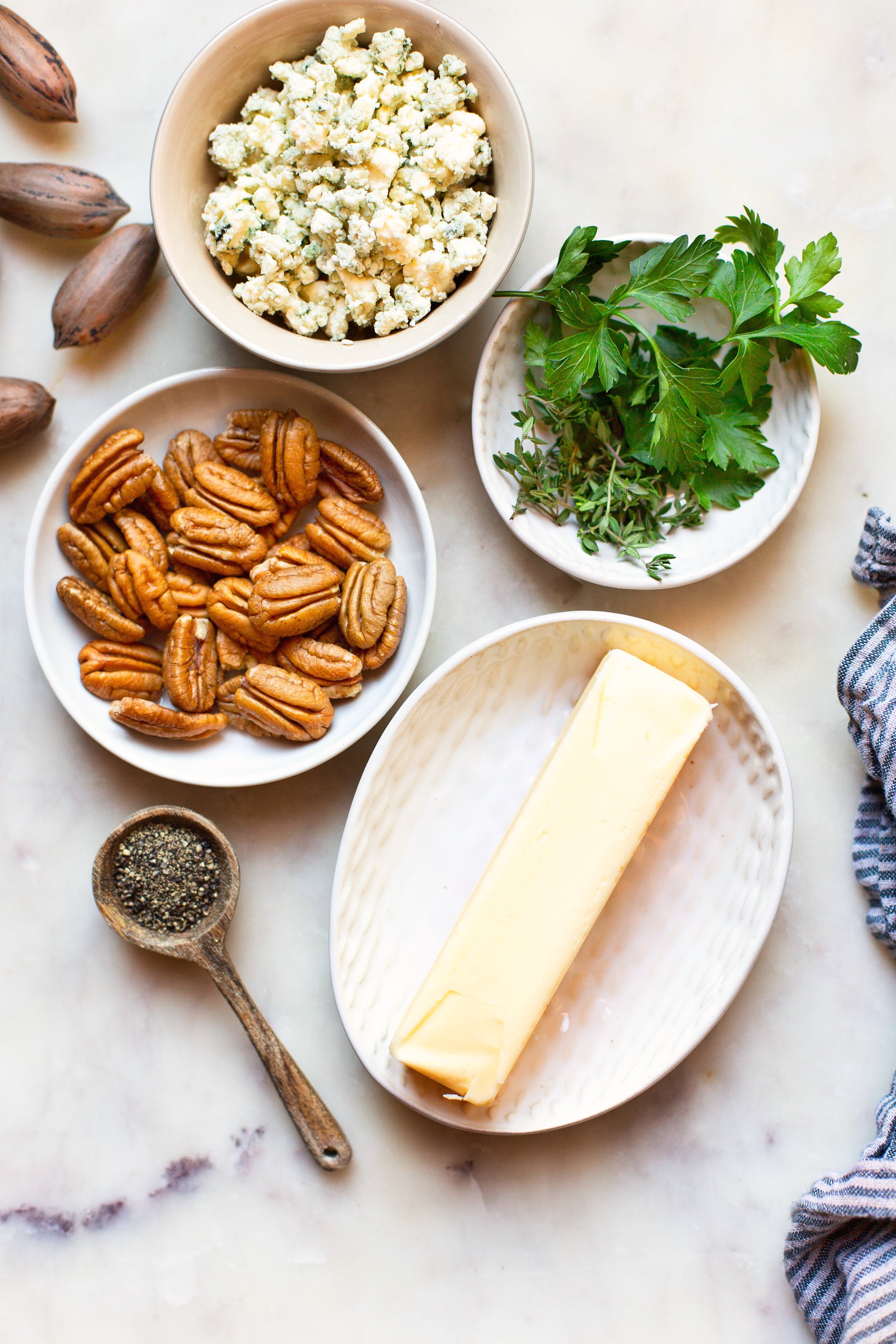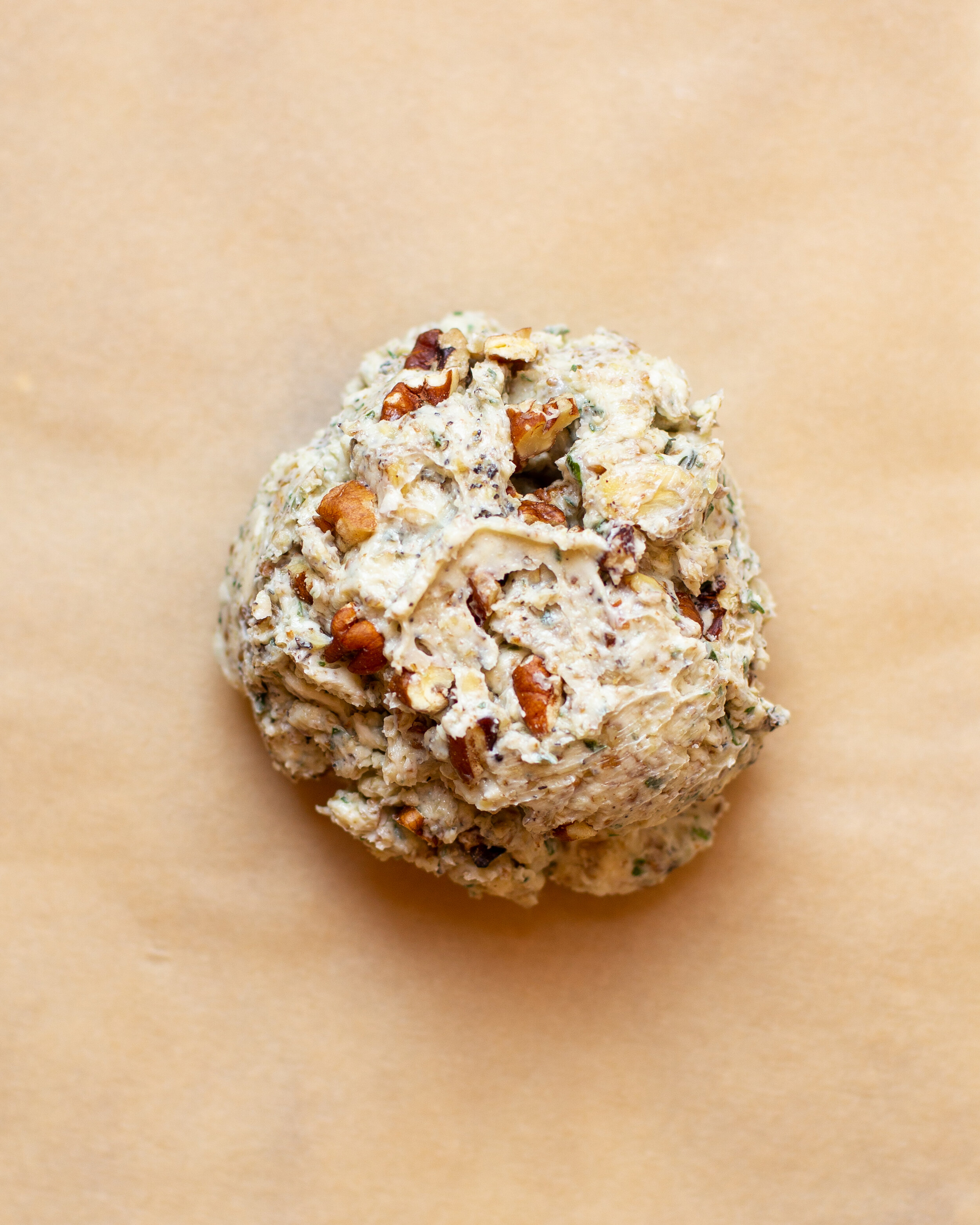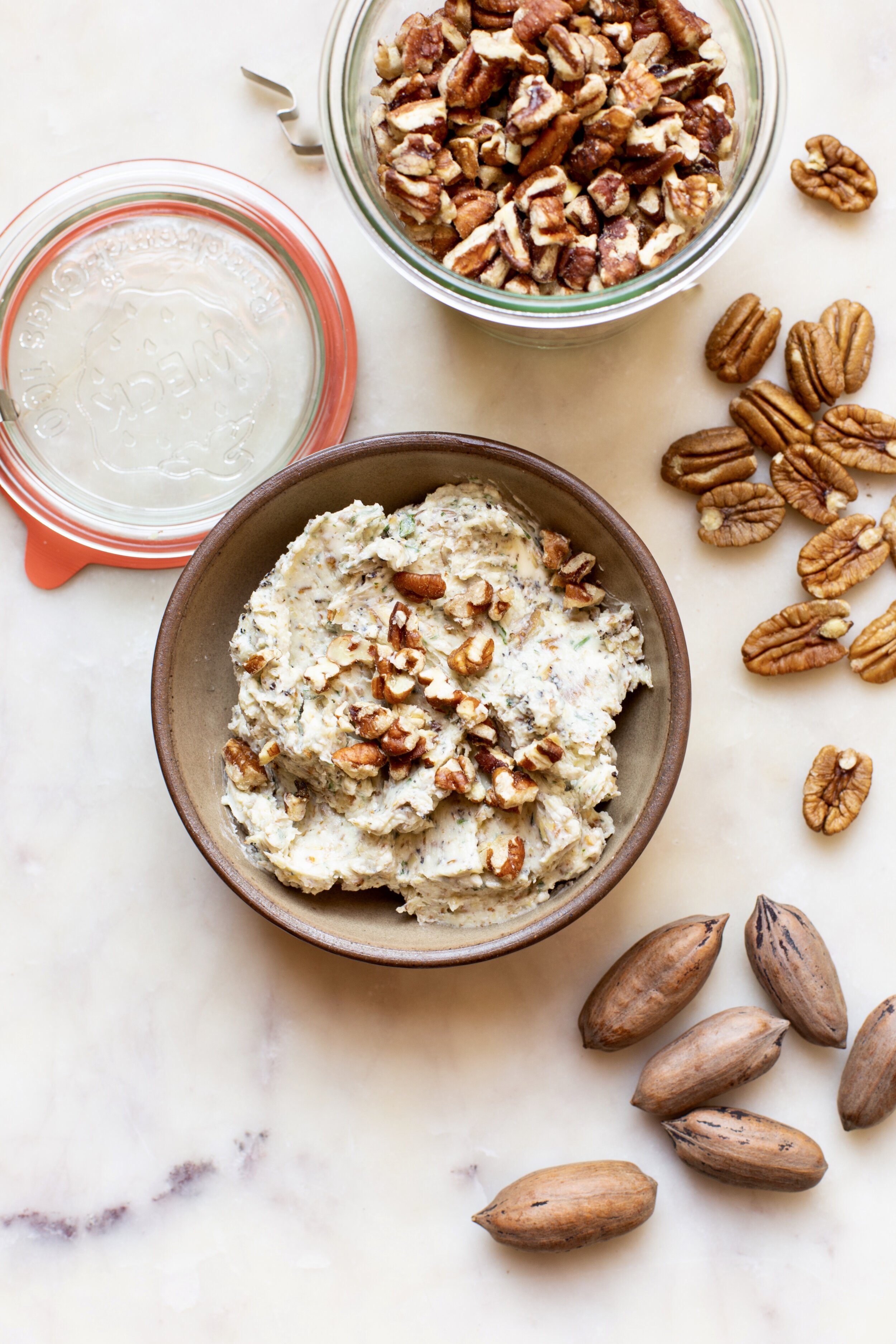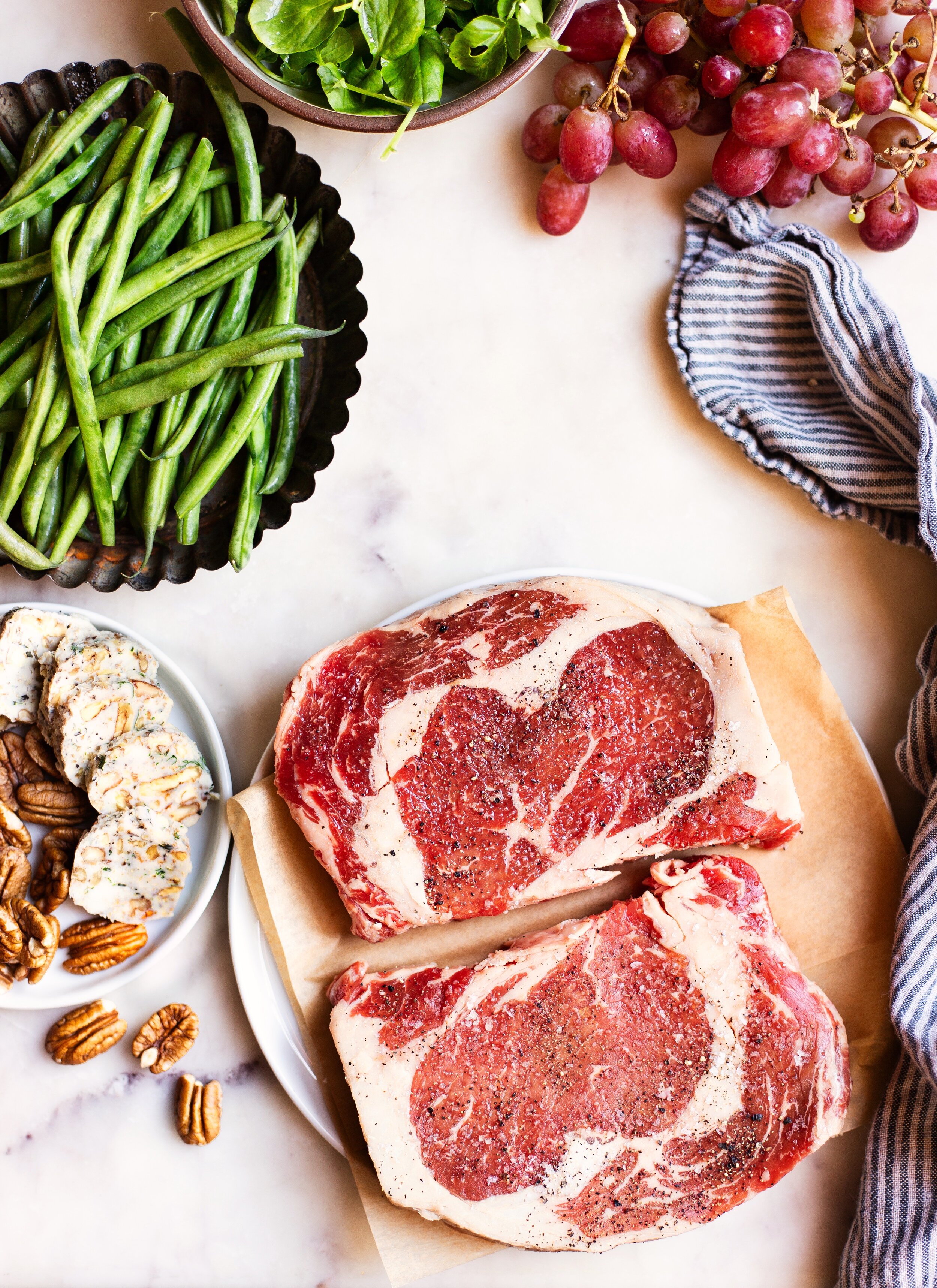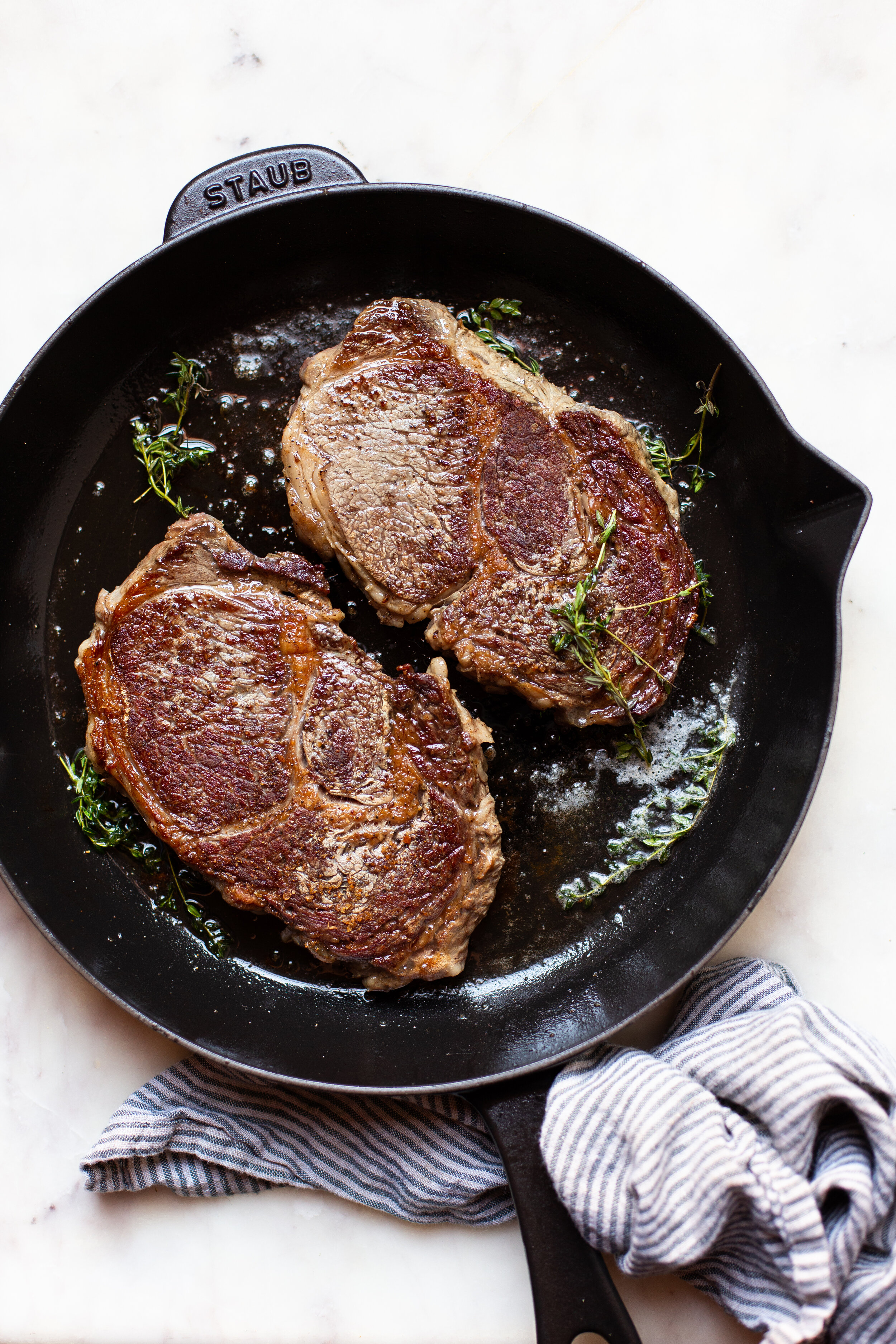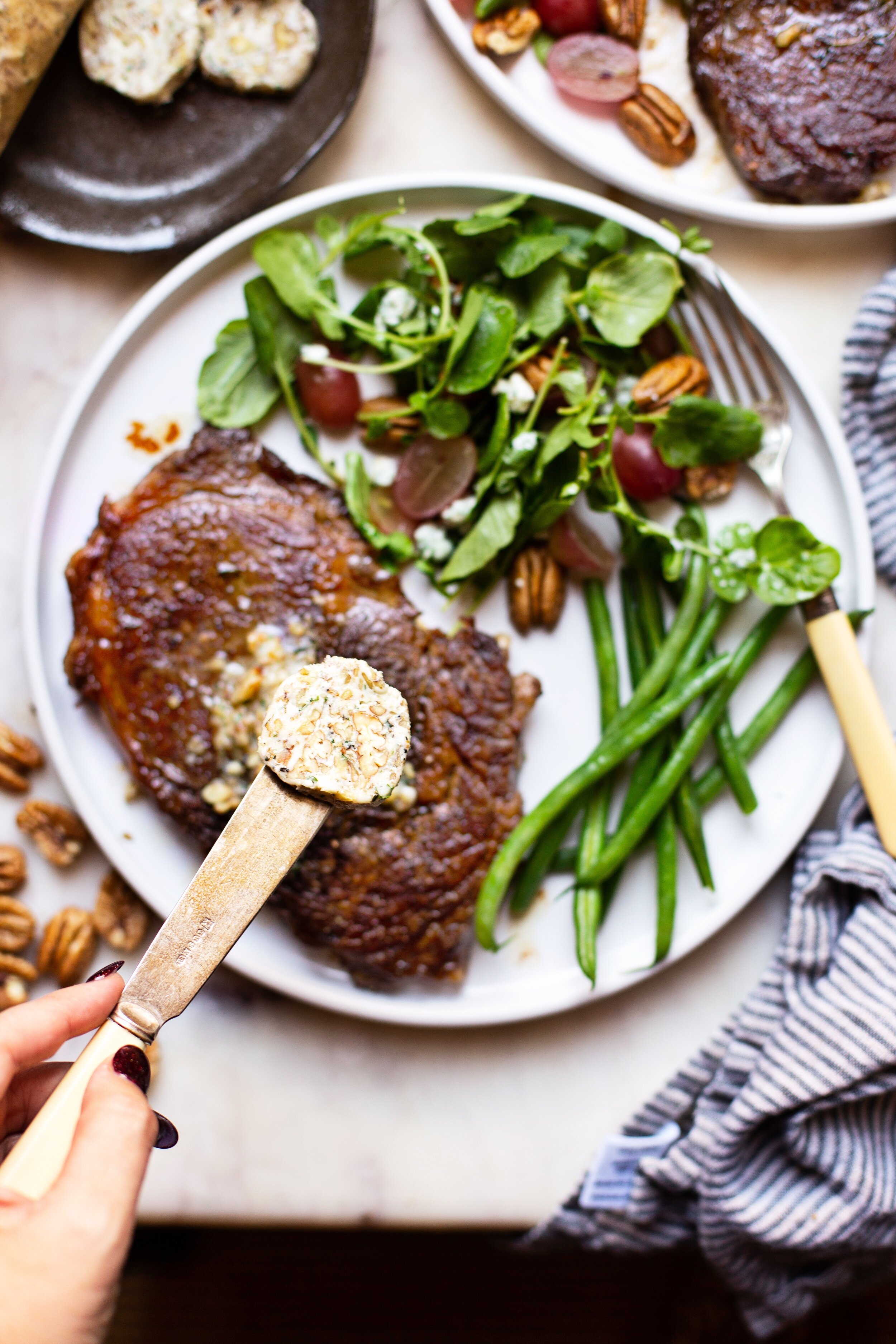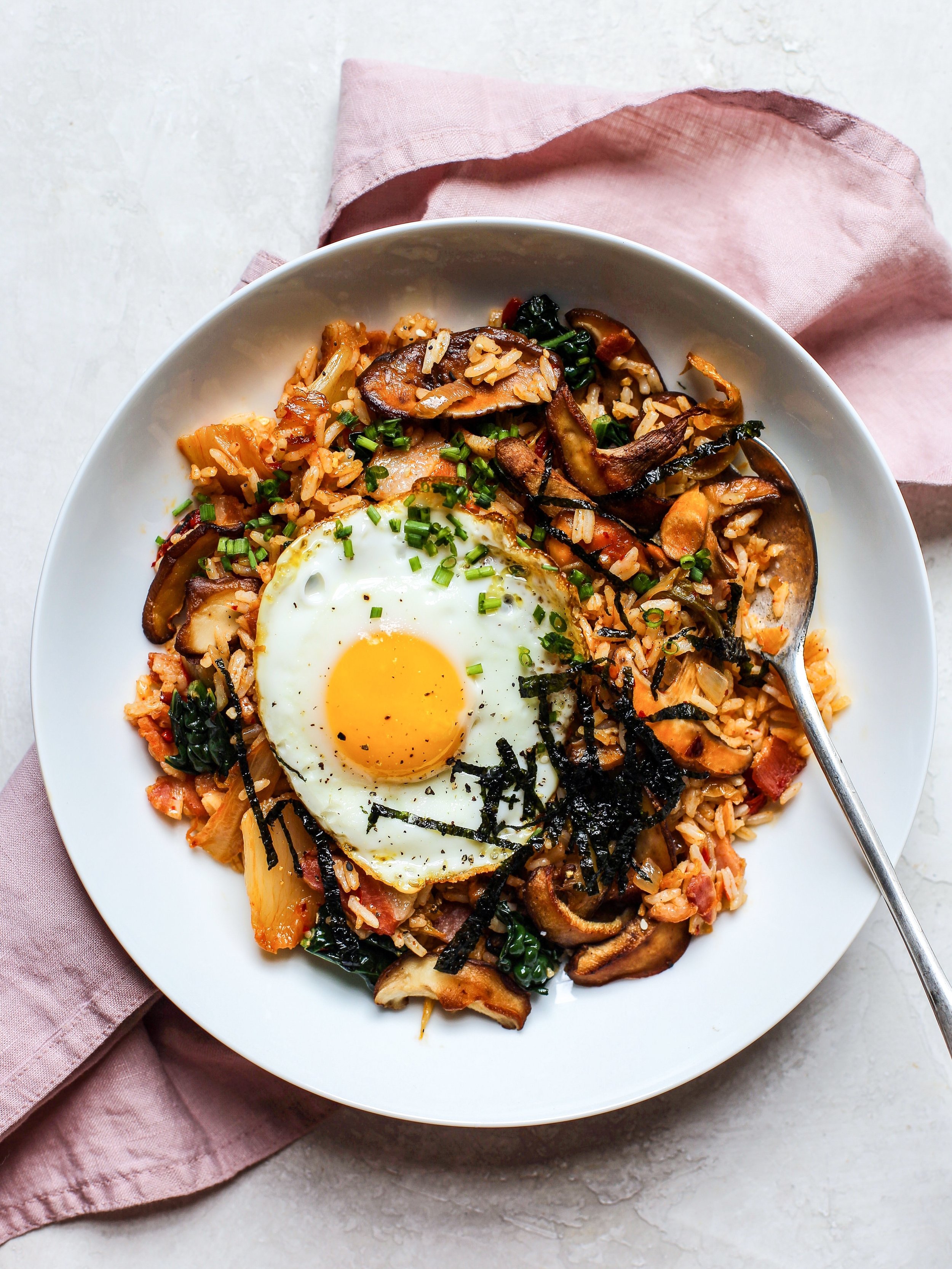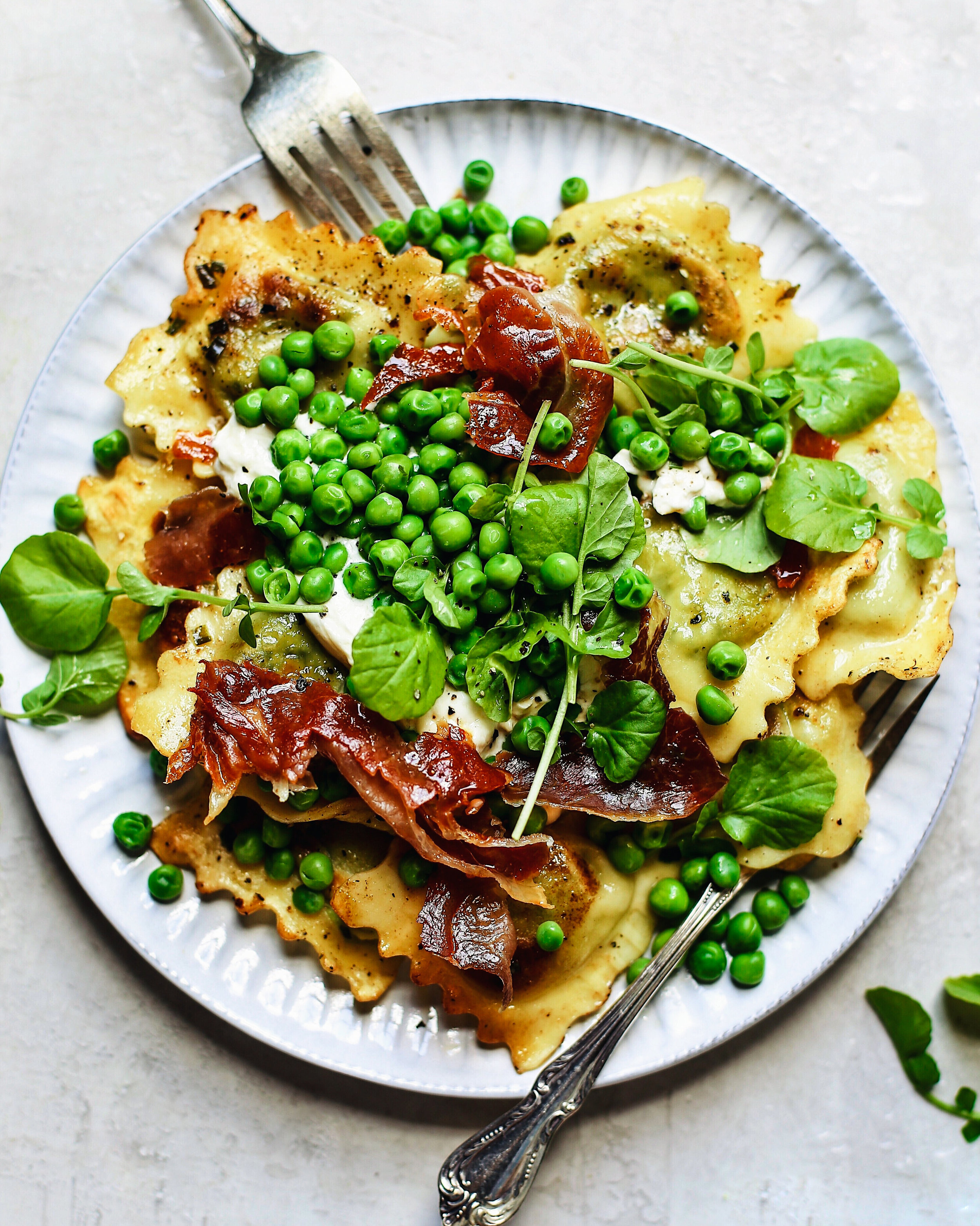Beef and Vegetable Soup
This post is sponsored by Beef. It’s What’s for Dinner. All opinions are my own. Thank you for supporting The Daley Plate and Beef farmers and ranchers!
Here’s an easy soup recipe for the start of Fall, using late summer tomatoes, zucchini, the last basil stragglers on the vines outside, and Ground Beef with butternut squash for heartiness. I’ve heard people here in America call this kind of soup “Hamburger Soup” over the years, and I always wondered why, because it certainly doesn’t taste anything like a hamburger :) Later I learned that hamburger is another name for Ground Beef. Silly me.
This is my version of beef and vegetable soup, with a few special touches here and there. Harissa, a North African chili paste, gives the soup a little heat, but you can substitute tomato paste in equal amounts if desired. I had fresh tomatoes ripening and basil in the garden here at home, but they can also be replaced with a can of tomatoes and Italian seasoning from the pantry. The soup is so customizable so replace ingredients with what you have on hand (I’ve listed options in the recipe), and give your loved ones the nutrition that they need any time of year. Sometimes to balance the soup out at the end, I add a touch of honey - This is very optional, but I do feel that it does a lot to balance out the acidity of the tomatoes.
I’ve included both a stovetop and slow cooker method below for those who like to have options, so please enjoy and let me know what you think in the comments! For more fall-forward recipes with Beef, visit www.beefitswhatsfordinner.com - Lots of great inspiration and tested recipes, plus information on nutrition. When it comes to fall recipes, nothing does it quite like Beef for us. Rich with iron and essential minerals, it leaves my family and I feeling great and nourished like no other.
Beef and Vegetable Soup
Prep Time | 10 minutes | Cook Time: 30 to 35 minutes (Stove) and up to 9 hours (Slow Cooker) | Serves: 8
Ingredients:
1 pound Ground Beef (I like ground Sirloin)
1 tablespoon extra-virgin olive oil
1 large yellow onion, chopped
1 rib celery, chopped
4 garlic cloves, minced
1 tablespoon mild harissa paste, plus more to taste
2 teaspoons smoked paprika
1 teaspoon kosher salt
1 teaspoon freshly ground black pepper
2 cups chopped fresh tomatoes (or 1 14-ounce can of tomatoes)
2 cups peeled cubed butternut squash (or sweet potato)
2 cups chopped zucchini (or cauliflower, or broccoli)
Parmesan rind (optional)
1/4 cup chopped fresh basil (or 1 teaspoon Italian seasoning)
8 cups beef broth
4 cups chopped kale
Stovetop Method:
Heat the olive oil in a large Dutch oven over medium heat. When the oil sizzles, add the onion and celery, and stir until the onions are golden brown and soft, 8 to 10 minutes. If the pot starts to look too dry, add a few tablespoons of water and continue stirring, repeating once or twice if necessary.
Add the beef, garlic, harissa paste, smoked paprika, salt, and pepper, and cook, stirring occasionally, until the beef is browned, and the spices are fragrant, 5 to 6 minutes. Add the tomatoes, squash, zucchini, Parmesan rind (if using), basil, and beef broth. Bring to a boil, then cover with a lid and cook, stirring occasionally, until the flavors have melded, and the vegetables are very tender.
Remove the Parmesan rind, if using, and stir in the kale. Cook for another 2 to 3 minutes until the kale is wilted and serve.
Slow-Cooker Method:
In a large skillet over medium heat, heat the olive oil. Once hot, add the onion, celery, Ground Beef, and garlic. Cook and stir until the ground beef is no longer pink.
Transfer the ground beef mixture into a large slow cooker. Add all remaining ingredients, except for the kale. Cook on low for 8 to 9 hours or on high for 5 to 6 hours. When there is about 30 minutes of cooking time remaining, stir in the kale. Taste and season as desired before removing the Parmesan rind, if using, and serving.
